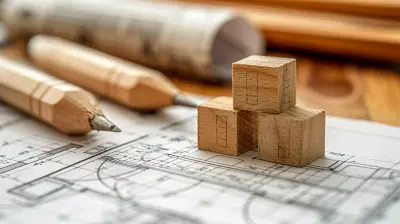3 February 2025
If you’ve ever stepped into the whirlwind of an auction or considered bidding on a property at one, you’ll know it’s not your typical house-hunting scenario. Auction day is a spectacle – think of it as the real estate version of an adrenaline-filled sporting event, where every bid counts, every pause feels like an eternity, and every second could change the game.
If it’s your first auction, it’s normal to feel a little jittery or downright overwhelmed. But don’t worry – I’ve got your back. This guide will walk you through everything you need to know, from what happens when the bidding starts to strategies you might consider adopting. Let’s break it all down, so when the gavel falls, you’re feeling 100% prepared. 
What Exactly Happens on Auction Day?
Auction day isn’t like window shopping for homes or scrolling through property listings online. It’s quick, intense, and packed with energy. Think of it as a theater performance but with a financial punch – buyers, sellers, and agents all playing their roles. Here’s a step-by-step breakdown of what typically unfolds:Registration: Setting the Stage
Before the auction kicks off, you’ll need to register. This usually involves presenting ID and getting a bidder's paddle or number. It’s your ticket to place bids, so don’t skip this step.Feeling nervous? That’s totally normal. But remember: registration doesn’t mean commitment. You’re not obligated to bid. You’re simply stepping into the arena.
The Pre-Auction Buzz
You’ll notice a palpable buzz in the air during the minutes leading up to the auction. People are milling around, eyeing each other, and trying to gauge the competition. It’s like a poker game but without the cards.Pro tip: Stay cool and confident. Whether you’re a seasoned bidder or a newbie, composure is key. No one needs to know if you’ve got butterflies the size of eagles in your stomach!
The Auctioneer Takes Center Stage
When the auctioneer steps up, the room (or outdoor space) quiets down. They’ll give a quick introduction, go over the property’s details, and outline the rules of the auction. If you miss something, don’t sweat it – the agents are typically around to help clarify any questions.Once the formalities are out of the way, the auctioneer will call for the opening bid. And just like that, the game begins! 
When the Bidding Starts: Here’s What to Expect
This is where things truly heat up. Bidding at an auction can feel like a fast-paced chess match or, to some, a heart-pounding thriller. But don’t panic – staying calm and focused is half the battle.Opening Bids Set the Tone
The first bid is crucial because it sets the tone for the rest of the auction. It’s usually a little lower than the property’s reserve price (more on this in a second), but once the ball is rolling, things can escalate quickly.If you’re planning to make the opening bid, it can send a message to the room: You mean business. But if the auctioneer kicks things off and there’s silence? Don’t be surprised if they throw in a “vendor bid” just to get things moving.
Watch for Momentum Swings
Auctions have a rhythm—a flow, if you will. At times, you’ll see rapid bidding back and forth between a few key players. Other times, there might be stretches of silence as bidders hesitate to up the ante.But here’s the thing: silence doesn’t mean it’s over. Sometimes, people are just playing it cool, waiting for the right moment to pounce.
The Reserve Price: Your Invisible Wall
Every property at auction has a reserve price – the minimum amount the seller is willing to accept. If bidding doesn’t reach that threshold, the property doesn’t sell (or gets “passed in”).The reserve price is like the hidden line in the sand. Once bidding surpasses it, the auctioneer will typically announce that the property is “on the market.” From there, the highest bidder wins. 
The Emotional Rollercoaster of Auction Bidding
Let’s be real – bidding at an auction is an emotional rollercoaster. Your heart races. Your palms sweat. You’re constantly doing mental math. Sound familiar?Here are a few emotional highs and lows you might experience:
- The “Should I Bid?” Moment: You’ll feel an internal tug-of-war when the bidding starts. Is it too soon to jump in? What if I overpay? Relax. There’s no “perfect” time – it’s about strategy and confidence.
- The Adrenaline Rush of a Bid War: There’s nothing quite like going head-to-head with another bidder. Every time you raise the paddle, it’s like raising the stakes in a game of poker.
- The Gut-Wrenching Pause: When bidding slows, the room feels like it’s holding its collective breath. Have you won? Is someone about to swoop in?
Pro tip: Always set a maximum bid before the auction. This helps you keep your emotions in check and prevents overbidding in the heat of the moment. 
Strategies for Auction Success
Winning at an auction isn’t just about having the biggest budget – it’s about playing smart. Here are some strategies to help you come out on top (or at least avoid rookie mistakes):1. Do Your Homework
Get familiar with the property market, recent sales in the area, and the property’s estimated value. Knowledge is power, and the more you know, the less likely you are to overpay.2. Practice Your Poker Face
Auctions are as much about psychology as they are about money. Look calm, confident, and unbothered – even if your heart’s doing backflips.3. Bid with Authority
When you bid, do it decisively. A hesitant or timid bid can signal uncertainty to other buyers (not ideal if you’re hoping to intimidate the competition).4. Don’t Get Caught in the Frenzy
It’s easy to get swept up in the excitement and bid more than you intended. Stick to your limit, even if it feels like you’re letting the property slip through your fingers. Remember: there’s always another house.What Happens If You Win?
Congratulations! If the gavel comes down on your bid, you’re officially the highest bidder. Here’s what happens next:- Sign the Contract: You’ll need to sign a legally binding contract of sale immediately after the auction.
- Pay the Deposit: Most auctions require a deposit (usually 10%) on the spot. Make sure you’ve arranged your finances ahead of time.
- Celebrate: You’ve earned it. Whether it’s your dream home or an investment property, winning an auction is no small feat.
What If the Property Gets Passed In?
If bidding doesn’t reach the reserve price, the property gets “passed in.” This doesn’t mean all hope is lost. Usually, the highest bidder is given the first opportunity to negotiate with the seller directly.It’s a bit like extra time in sports – the formal auction is over, but the game isn’t finished just yet.
Wrapping It All Up
Auction day can be a rollercoaster of emotions, but it’s also one of the most exhilarating ways to buy a property. From the moment the bidding starts to the final gavel drop, every second is packed with tension, excitement, and opportunity.The key to navigating it all? Preparation, confidence, and a firm understanding of your financial limits. Whether you’re walking away with the winning bid or simply soaking in the experience for next time, you’ll be better equipped to handle the highs and lows of the auction arena.
So, next time you step into the auction ring, remember: you’re not just a spectator. You’re part of the action, and with the right mindset and strategy, you might just walk away victorious.










Zaylee McNab
This article on auction day seems intriguing! I’m curious about the strategies bidders use to stand out in a competitive environment. Are there specific tactics that consistently lead to success? Also, how do emotions play into making critical decisions during the bidding process?
April 1, 2025 at 11:35 AM